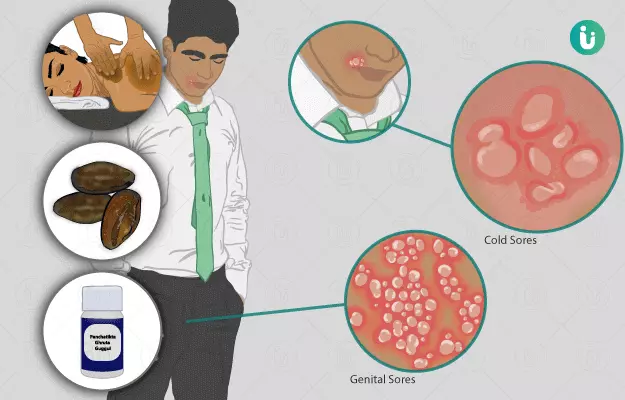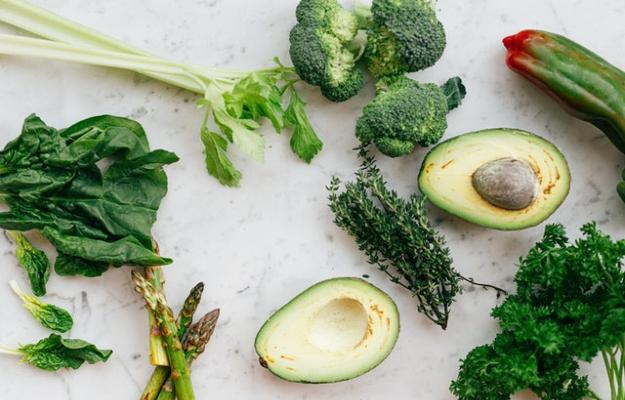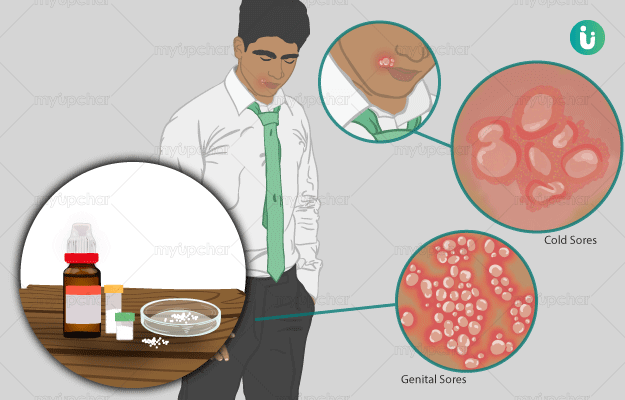Herpes, also called visarpa or parisarpa in Ayurveda, is a condition caused by the nita group of viruses, which includes herpes zoster virus, herpes simplex virus-1 and herpes simplex virus-2. Herpes zoster virus causes shingles, which is characterised by rapidly spreading inflammation, pricking pain, deep pink-coloured patches with itching, waxiness of the skin, erection of hair on the skin, lack of energy and weakness. Although herpes lesions appear to be simple, the pain and burning sensation are agonising. It is an acute condition which needs immediate treatment.
Herpes simplex is another type of herpes infection. It is caused due to herpes simplex virus (HSV). HSV-1 mainly affects the oral cavity but it may also cause genital infections. Oral herpes spreads through direct contact with infected secretions such as by sharing toothbrush and kissing. HSV-2 is the causative organism for genital herpes, a sexually transmitted disease.
Ayurvedic texts mention various treatments, herbs and medicines for the management of visarpa based on the predominance of the vitiated doshas. After a detailed observation of the clinical condition, an Ayurvedic physician may prescribe treatment procedures like langhana (fasting), virechana (purgation), raktamokshana (bloodletting) and lepa (coating the affected body part with medications) to treat visarpa.
Herbs and medicines used for the treatment of visarpa are yashtimadhu (mulethi), arjuna, ghrita (clarified butter), haritaki (chebulic myrobalan), amrutadi kwatha and panchatikta ghrita guggulu.











































